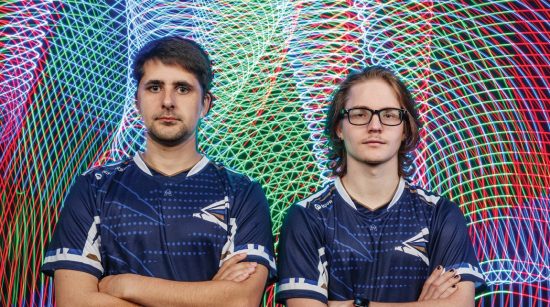Eagles on the Virtual Battlefield
Eagle Esports Brings GATA to College Call of Duty League

Georgia Southern University student-athletes have left their mark on fields and courts, the track and the range. Now they’re also creating a name for themselves on the battlefield — the virtual battlefield, that is.
Eagle Esports is a group of Georgia Southern student-gamers who play the Call of Duty (CoD) video game competitively, facing off against colleges and universities from across the U.S. and Canada. In 2018, students Zac Fancher (’22), Matthew Durr (’22) and Derrick Abrams (’21) formed the group and began playing in the College CoD League (CCL), which was established the same year.
And just like the Eagle teams of Georgia Southern lore, these Eagles made an impact immediately, winning the 2018 CCL National Championship in their first year.
“It was the very beginning of the league,” said Durr, a recent economics graduate from Atlanta. “It was not the competition that we have now, obviously, but still, it meant a lot to us to be in the very first year of the league and we came out and won it as Georgia Southern. It was super cool.”
Despite the competitive rise in caliber, Eagle Esports has continued to be among the elite in the CCL. In 2019, they placed in the top 12 among 190 teams and came in fourth in 2020. Last year, in their first year as an official club sport at the University, the Eagles fielded two teams — a “varsity” and an “academy” team — that placed in the top 16 and top 24, respectively. Currently, they are ranked in the top 16 in the country out of 250 schools.
“For literally my entire collegiate career, we have been in the nation’s top 25 power rankings,” said Fancher. “We’re very good. We can beat literally anybody. We’ve beaten Alabama. We’ve beaten Florida State. We’ve beaten Kennesaw repeatedly.”
“The league is super competitive,” added Durr. “It gets competitive all the more every year.”
Organized esports have been around almost as long as video games, but didn’t skyrocket in participation and revenue until the late 2000s, with the rise of professional players and the ability to livestream tournaments. According to Statista.com, the esports market is now worth more than $1 billion and caters to more than 474 million fans worldwide. Professional prize pools can reach more than $12 million depending on the game and its popularity.
Unsurprisingly, colleges and universities are now actively recruiting esports players, offering dedicated state-of-the-art facilities and equipment as well as full scholarships to select gamers. Durr also says the rules of CCL don’t exclude former professional players from joining college teams. Fancher says one university has a recent world champion on their team. “It’s definitely super competitive,” said Durr.
While casual observers of the sport might deride the fact that its players sit motionless in a comfortable chair, using only the muscles in their hands and fingers to play, Fancher says the game is so much more than that. When asked what it takes to be good, he said the list is long.
“Fast reaction time. Excellent hand-eye coordination and motor functions, because aiming is hard. And then multitasking, your ability to do multiple things at once. In the game, there are a whole bunch of things you have to track.
“You have to pay attention to where your teammates are, the amount of time left on a specific zone because the hill will rotate around the map…, how many people you have currently coming off of spawn [character recreation after losing a life]. There’s something called the ‘kill feed,’ and it’ll have different people in colors and you have to track how many people are down.
“It’s all that stuff at once, all at the same time, while actively shooting at people in the game.”
Both Durr and Fancher graduated this year, but they say the future is bright for the club. The two veterans played on the academy team in their last year to train up younger players on the roster, and the main Eagle Esports team has veteran players as well as transfers who will keep the team competitive. With their official club sport status, the team also has a dedicated space in the Grube Recreation Activity Center and powerful PCs on which to practice.
Neither Durr, Fancher or Abrams, who is now a software developer in Atlanta, know if they’ll pursue esports in the future, but all three say the experience taught them volumes about leadership, discipline and the power of connections.
“Esports is growing,” said Fancher. “It keeps getting bigger. It’s hard to get your foot in the door, but that’s one of the benefits of the leagues that we compete in, because we meet people from all over the country.”
